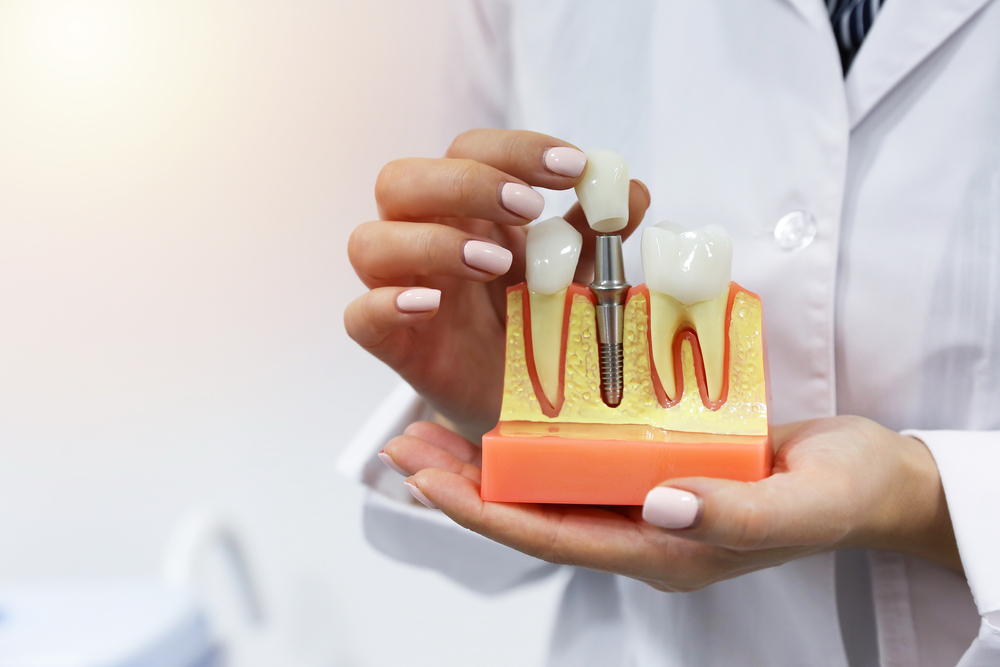IMPLANTS
What is dental implant
Beyond its cosmetic impact, a missing tooth can lead to additional bite-related complications. Adjacent teeth may shift positions in an attempt to fill the gap, resulting in alterations to both your bite and smile. Furthermore, jawbone shrinkage may occur, which can noticeably change your facial structure and appearance, even when you’re not smiling. Simple everyday tasks like talking and chewing can become more challenging in the absence of teeth.
While bridges and dentures can serve as viable solutions for missing teeth, they are not as advantageous as a permanent implant. Dental implants, which replace missing teeth, offer several benefits. They not only restore your smile but also help maintain the integrity of the jawbone by preventing shrinkage and structural changes.
How dental implants work?
When it comes to replacing missing teeth, dental implants stand out as the superior choice. This restoration method is suitable for patients who have one or more missing teeth. Through a surgical procedure, the dental implants are securely placed into the jawbone, providing a stable and lifelike foundation. The crown, also known as the cap, is then affixed to the implant structure to closely resemble a natural tooth.
Dental implants offer numerous advantages over alternative methods:
- Comfortable: They provide a comfortable and natural feel.
- Reduced sensitivity: Implants can help alleviate sensitivity issues.
- Higher success rate: They have a high success rate in terms of long-term outcomes.
- Enhanced chewing: Implants significantly improve the ability to chew and eat properly.
- Lower risk of cavities: Unlike natural teeth, implants are not susceptible to cavities.
- Preservation of bone: They help maintain and stimulate the growth of the jawbone.
- Natural appearance: Implants seamlessly blend in with the surrounding teeth.
- Permanent solution: Implants offer a long-lasting and permanent tooth replacement option.

Maintenance
Once your procedure is finished, it is crucial to maintain proper care for your implants just as you would for your natural teeth. This entails daily brushing and regular dental cleanings, preferably every 6 months. Additionally, a follow-up appointment will be scheduled to assess the health of your gums and monitor the healing progress of the implant.
